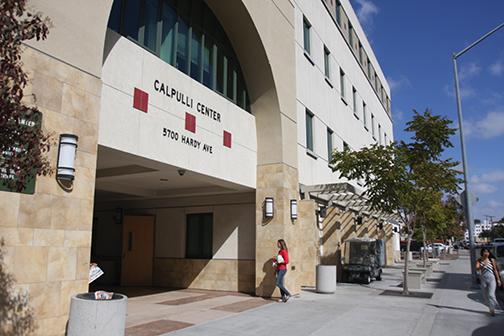The mental health of college freshmen has reached an all-time low, according to the University of California, Los Angeles Cooperative Institutional Research Program’s annual survey of incoming freshmen from more than 200 colleges and universities in 2014.
The self-rated responses from 153,015 freshmen showed that their emotional health was lower than it has ever been since the survey started 49 years ago.
Corporal Mark Peterson, the SDSU Police Department Community Resource Officer, said in an email interview that the department responds to several reports of mental health emergencies every year. He said since the beginning of the fall 2014 semester, campus police have responded to five reports of people feeling suicidal or making suicidal comments.
But Petersen said no actual attempts have been reported. This figure is encouraging, considering SDSU police responded to approximately 40 reports of mental health emergencies in 2012, 20 in 2013, and 20 in 2014.
“Mental health emergencies are emergencies,” Peterson said.
He said to reduce mental health emergencies SDSU police work with other campus departments in a “campus-wide collaboration.”
Counseling and Psychological Services, at the Calpulli Center, is one of the primary campus resources provided to SDSU students in distress.
Peterson believes the collaboration of departments has played a significant factor in the reduction of reported suicide attempts at SDSU. Peterson advises to call police and medical response as soon as possible if students become aware of someone who appears suicidal.
Director of Counseling and Psychological Services Jennifer Rikard said she encourages students to join and to enroll in any of the various training programs her department offers, including Question, Persuade and Refer, a suicide prevention certification, and Cultivating Optimal Personal Experiences, a clinic on coping with stress.
Rikard said the stigma surrounding depression is being reduced because more people have been open about feeling depressed. One of Counseling and Psychological Services’ main goals is to reduce these stigmas. One approach taken by Counseling and Psychological Services is to reach out to the community and educate people on these personal and often sensitive issues.
“It’s a community issue—not just (an issue) for the professionals,” Rikard said.
Counseling and Psychological Services also oversees Active Minds, a student-run organization focused on raising awareness about mental health and removing stigmas.
Rikard said a good way to assist depressed peers is to “take the time to listen.”
“Really listening to what they’re going through can go a long way,” she said. “It can help someone feel understood, and not alone.”
The university offers several resources for students who may be experiencing feelings of depression, isolation and financial stress. For those who are interested in education on the topic, Active Minds meetings take place at 1 p.m. on Thursdays on the fourth floor of the Calpulli Center, conference room 3.
Advocates for mental health said the entire community must fight the stigmas attached to mental health, and everyone can make a significant impact with respect to this issue.









